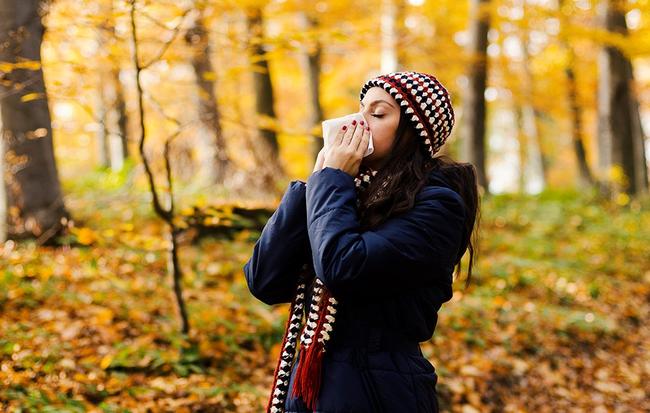Fall allergies don’t get as much attention as their spring counterpart, but they can suck just as much. Itchy eyes, a runny nose, cough, and just overall feelings of crumminess come with the territory.
“As the weather turns colder, different allergens become more prominent,” says Scott Rickert, MD, a professor and otolaryngologist at New York University Langone Medical, citing ragweed, mold (which can build up in wet leaves), and some trees as big issues for sufferers.
Of course, if you feel yucky and have allergy-like symptoms, it’s natural to assume that it’s due to fall allergies. But allergist Neeta Ogden, MD, a spokesperson for the American College of Allergy, Asthma and Immunology, says she regularly sees people who think they’re suffering from allergies but actually have another health issue.
Here are the biggest signs that your “fall allergies” are a sign of a different medical condition:

Nasal pain that appears out of the blue could be a sign of a sinus infection, especially if you also have a fever and green or discolored mucus, says Purvi Parikh, MD, an allergist and immunologist with Allergy & Asthma Network. Ditto for strep throat, which comes on quickly and can cause pus to develop on your tonsils, plus difficulty swallowing, she says.

It could be a sign of bronchitis or another upper respiratory infection. “Infections will have mucus coming up and allergies are usually a dry cough,” Parikh says.

If you feel that your cough has gone from a basic tickle in your throat to something more deep, it could be a sign of bronchitis or pneumonia, Rickert says.

This doesn’t necessarily mean you don’t have fall allergies—but it might not be the allergies that are causing your symptoms. If you have an itchy tongue, lip, or throat after eating certain fall foods like apples, you might actually have an oral allergy, says Clifford W. Bassett, MD, founder and medical director of Allergy and Asthma Care of New York and author of The New Allergy Solution: Supercharge Resistance, Slash Medication, Stop Suffering. In most cases, they’re not serious but they can be uncomfortable, so it’s best to avoid the foods that bother you, if you can, Ogden says.

That’s probably just a standard cold, Ogden says. “A cold is self-limited and if your symptoms come back in a week or two, it’s much more likely that you have allergies,” she says.












